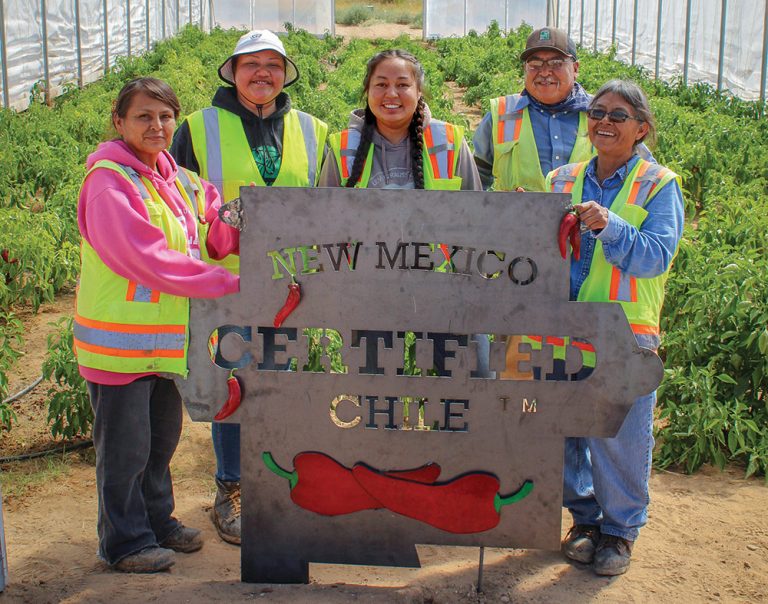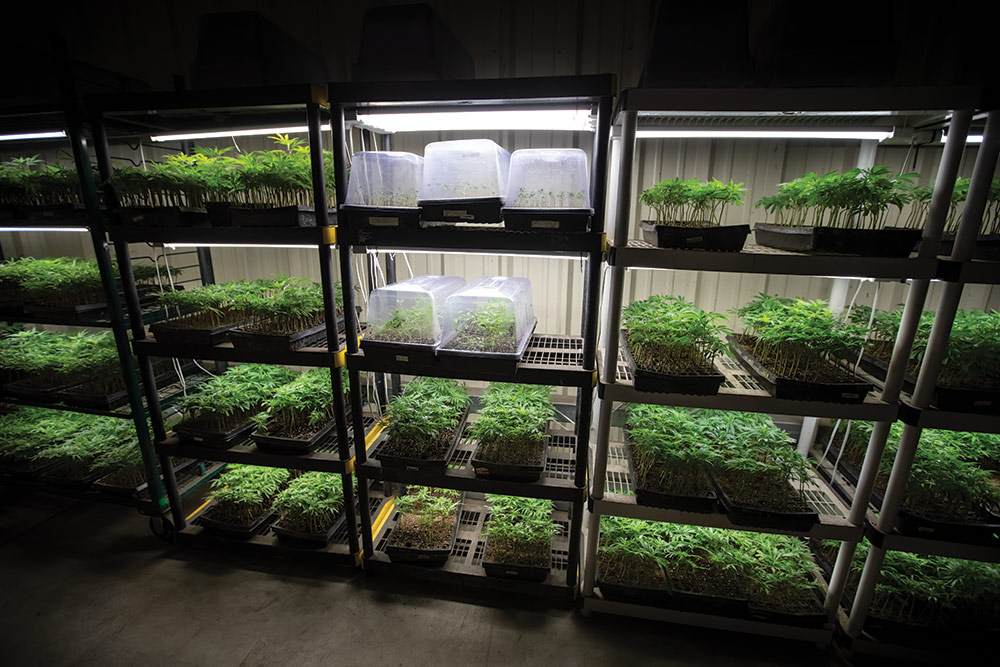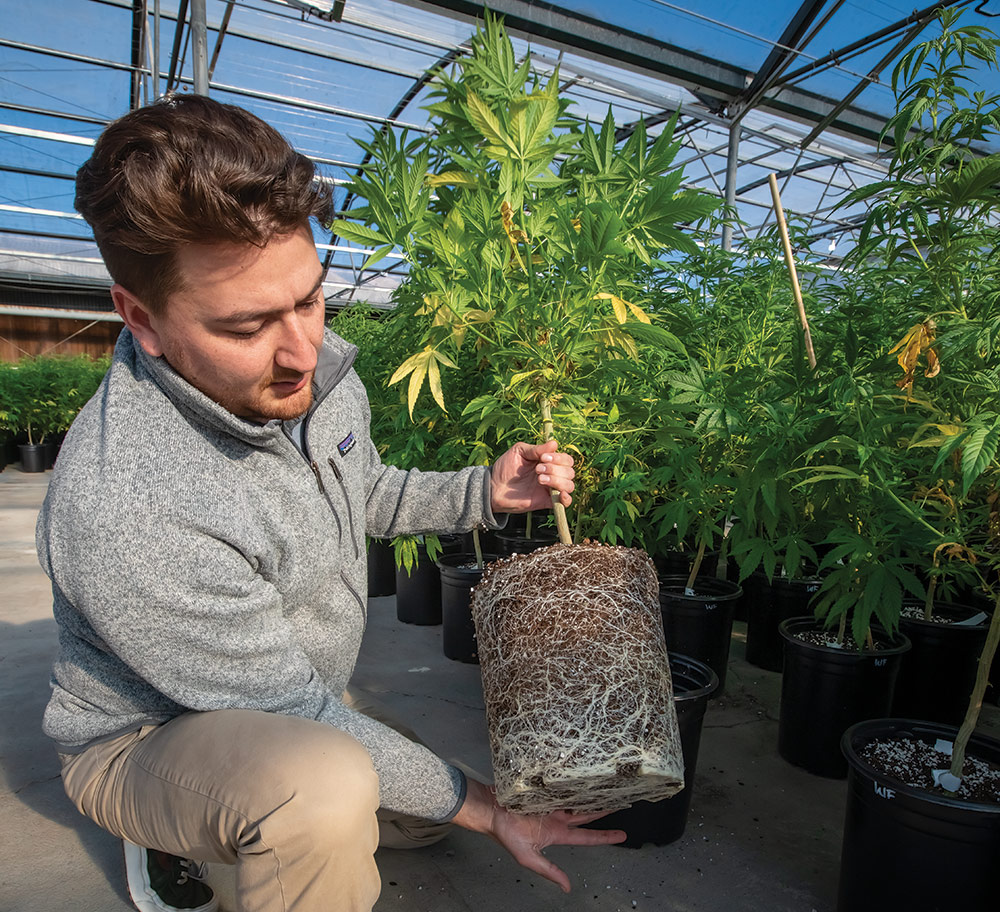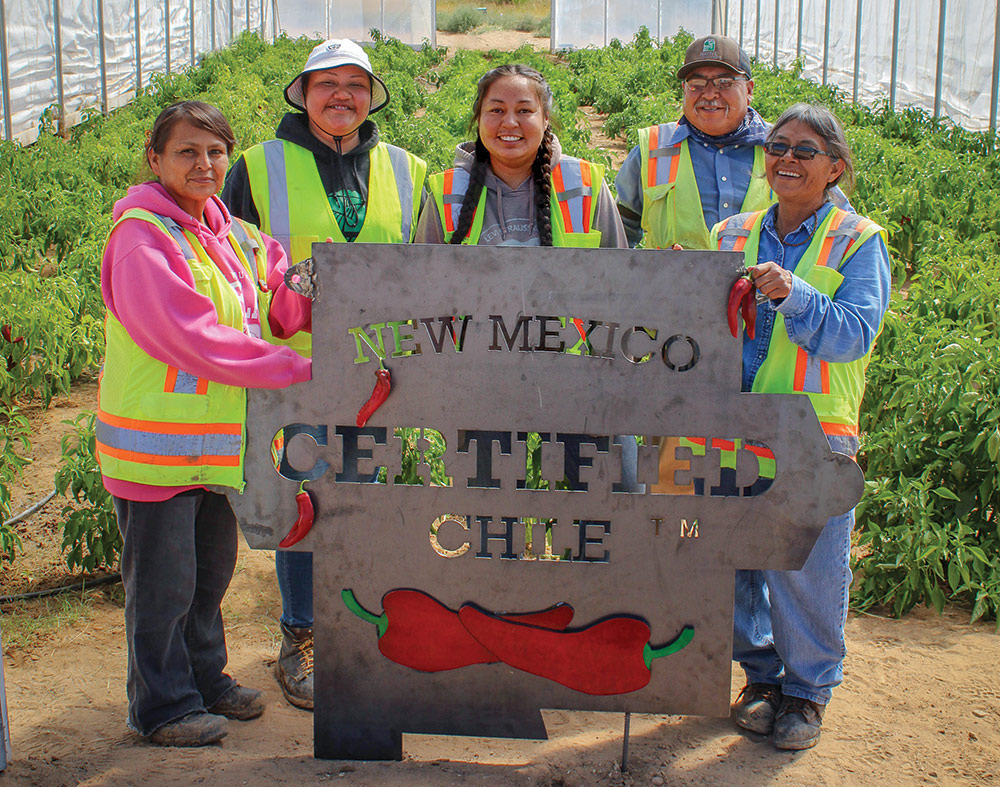Hemp is the Next Big Thing in New Mexico
New Mexico sees new opportunities in hemp production.

New Mexico’s deep roots in agriculture have already cultivated a thriving food production industry that contributes more than $1.5 billion to the state’s GDP. The state is ideal for agriculture, thanks to its exemplary growing conditions, diverse climate zones suitable for a wide variety of crops, abundant water sources, favorable business environment and access to vast consumer markets.
Although it has a long history in agriculture, New Mexico is always looking forward, leading the way in development of new products and markets. That includes the production of hemp and CBD oils, with those products expected to become a $1.1 billion industry in the U.S. by 2025.

400 Licenses
Looking to capture a significant piece of that growth, New Mexico enacted legislation in 2019 that gives hemp producers a statewide framework for growing the plants. The state worked closely with growers and processors to develop specific policies that ensure the regulatory environment is tailored to their needs.
“In 2019, during the inaugural year for growing hemp in New Mexico, we expected to issue 75 to 100 licenses, but actually issued more than 400 licenses to growers,†says Jeff Witte, director/secretary of the New Mexico Department of Agriculture. “About 300 were issued for outdoor growth over 8,000 acres, and another 100 licenses for indoor growth in about 8.4 million square feet of year-round greenhouse operations.”
The hemp plant can be processed into clothing, paper, insulation products and even consumables, like additives to salads. CBD oil, the nonpsychoactive ingredient found in the plant, can be extracted and used in a variety of products designed for pain relief, insomnia, muscle aches and relaxation. This is just the tip of the iceberg with regard to possible uses for hemp, Witte says.
“There is talk down the road for hemp becoming an alternative to some plastics, like making single-use food storage bags out of hemp so they can biodegrade,†he says. “There is also talk about replacing some car interior parts with hemp. At New Mexico State University, one of the main things being researched these days is additional opportunities for hemp.”

‘Good Stewards of This Amazing Plant’
As hemp growing gains momentum, several individual companies are investing in the industry in New Mexico.
Heath Grider is a hemp farmer in Portales who wanted to get in on the ground floor, noting that the plant is a prime product for the state because it requires much less water than corn or alfalfa.
A major producer, Rich Global Hemp has moved its headquarters from Nevada to New Mexico. They are renovating a greenhouse facility of approximately 800,000 square feet in Mesilla and will begin growing hemp plant clones that will later be processed into CBD. The company plans to hire 180 people.
“Our team behind Rich Global Hemp has a long history of patient advocacy and has worked with both doctors and patients on severe conditions, including neurological pain management, chemotherapy side effects and cellular regeneration,†says Kai Kirk, co-founder of Rich Global Hemp with partner Glen Astrove. “We are here to be good stewards of the industry and this amazing plant.”
Kirk says hemp and its therapeutic values have been known for centuries, but only recently has it become available for full legal use.
“As an industry, hemp is still very young and immature, and we saw an opportunity to help push the industry in a positive direction,†he says. “In New Mexico, we are creating clones and seeds for farmers from proven genetics that will yield a viable and profitable crop. It all starts with good genetics and continues with good farming practices. We are here to help ensure there are more good stories about hemp than bad ones.”
Kirk adds that his company has received great support from the state government, the Department of Agriculture and New Mexico State University.
“For the 2020 season, we are producing nearly four times the clones and seeds we did for 2019,†he says. “There is much on the horizon in this ever-changing market.”

Growth Process
Navajo Pride among the state’s top crop processors.
New Mexico has a rich heritage in agriculture, and today, the state is home to nearly 25,000 farms and 43.9 million acres of farmland.
New Mexico’s top commodities include beef cattle and calves, pecans, hay, sheep, onions, chiles, cotton, corn, greenhouses and nursery products. It is a heritage that has created a robust value-added agriculture industry that includes General Mills, Leprino Foods, Mizkan and Stampede Meat.
In addition, New Mexico has a host of top crop processors, among them Navajo Agricultural Products Industry (NAPI), which has 72,000 acres of contiguous irrigated farmland for crops that include alfalfa, corn, small grains, potatoes and pinto beans.
“Our farmland is owned and operated by the Navajo people, with all crops labeled with the Navajo Pride brand,†says Rae DeGroat, NAPI public relations coordinator. “We are also certified to grow Navajo Pride Organic products such as watermelon, squash and corn.”
NAPI has 300 full-time employees and 600 during the growing season, and the company also sells forage to several dairy farms across Arizona, Colorado, Florida, Kansas, New Mexico, New York, Oklahoma, Texas and Utah.
“NAPI has also developed a very close relationship with New Mexico State University,†DeGroat says. “We work in conjunction with the NMSU Science Center to further research and provide pilot projects on growing hemp, Kernza, peanuts, apples, peaches, cherries, blackberries and a variety of beans. The vision for NAPI is clear: Farming sustainably across generations to cultivate a healthy nation.”



